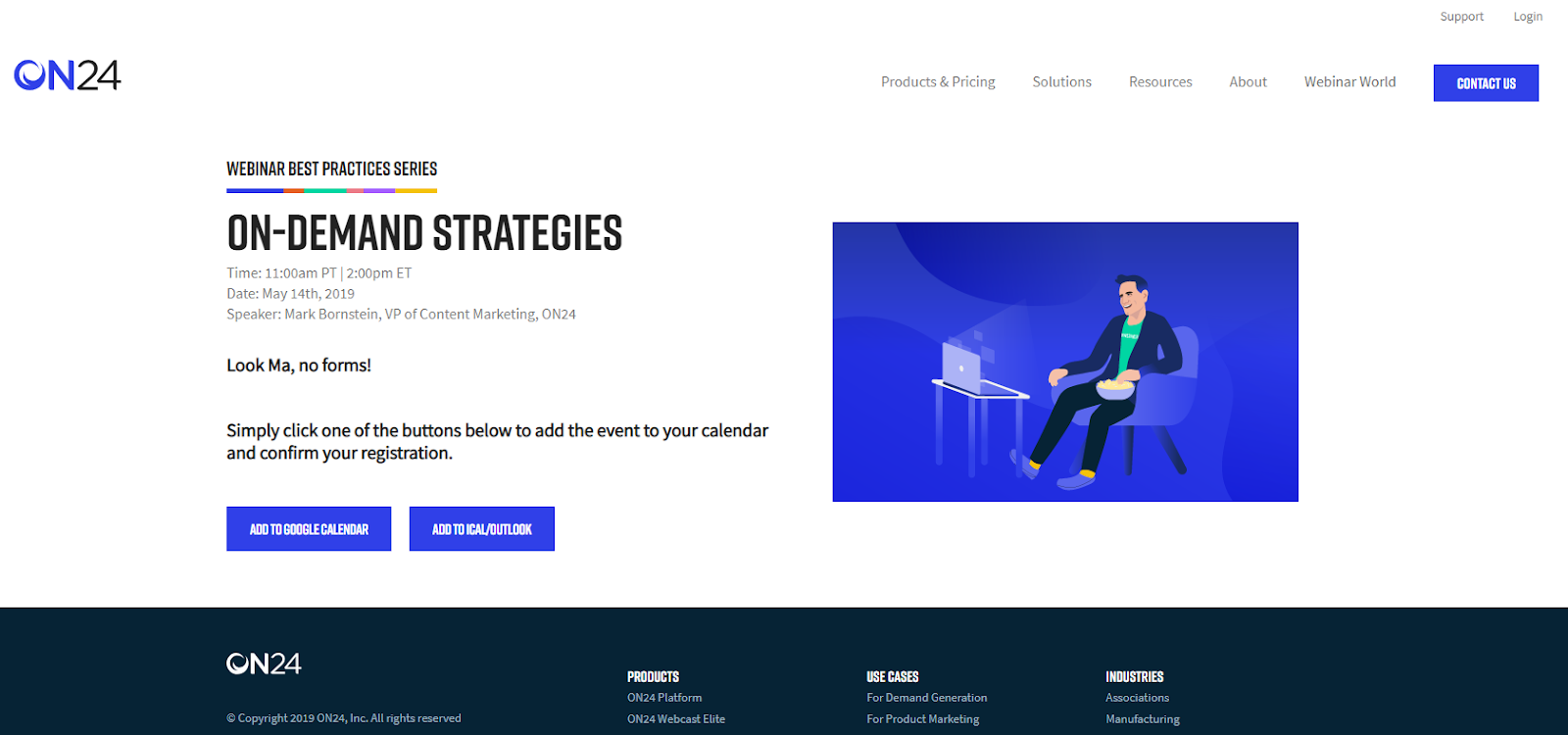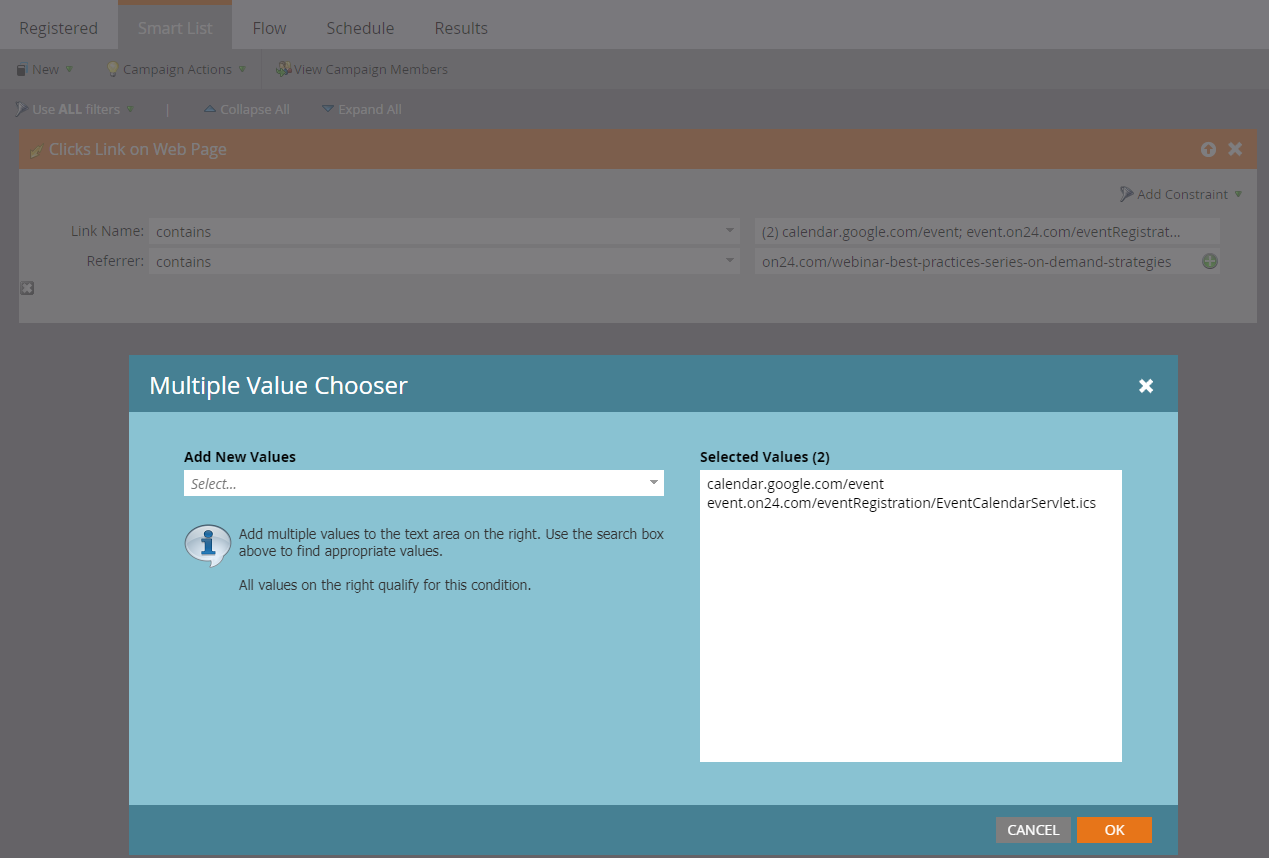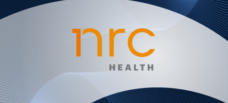This past month, we tested a new registration process for our Webinar Best Practices Series. Instead of filling out a cumbersome form, users simply click a button to add the webinar to their calendar, and voilà, they are registered. This simplified process lowers the barrier to registration and, so far, has led to an uplift in our numbers. After a few requests for an explanation of how it works we decided it was time to share it with our fellow webinerds!
How it works
The mechanics are simple. Note that, while we are using Marketo to accomplish this, it should also be possible with other automation platforms.
The first thing we did was create a simple landing page with buttons to add the webinar to the user’s calendar. We marked the page with both noidex and nofollow so search engines can’t find it. We’ll explain why soon.

ON24’s integration with Marketo means we can use any action to trigger a webinar registration flow. Generally we wait for a form-fill, but, in this case, what we’re looking for is a click on either of two particular landing page links.

The information in the calendar invites is stored as query strings at the end of the links, so make sure you strip everything after (and including) the question mark off of the end of the link.
After we set up the trigger, all we have to do is add our standard registration flow steps to the smart campaign. Once that’s done, we’re ready for the races.
Things to consider
This process does have two major limitations to consider:
- This only works for people who have your Marketo cookie. To combat this, we only included in email sends from Marketo and we made sure that page was not findable on Google.
- The process doesn’t work if people forward the email. Depending on your audience, this could be a big problem. So far, it hasn’t been for us, but we are still in the testing phase.



